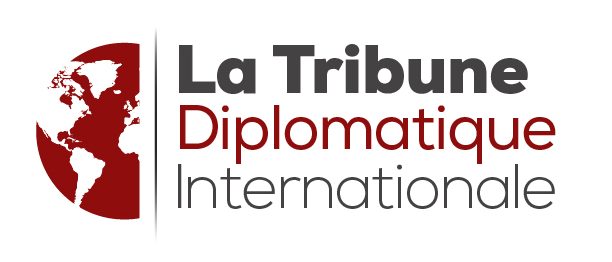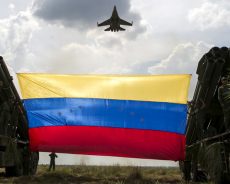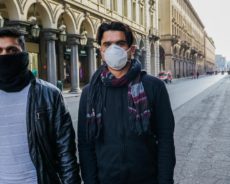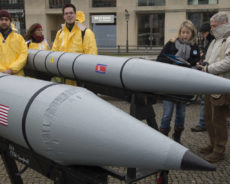![]()
![]()
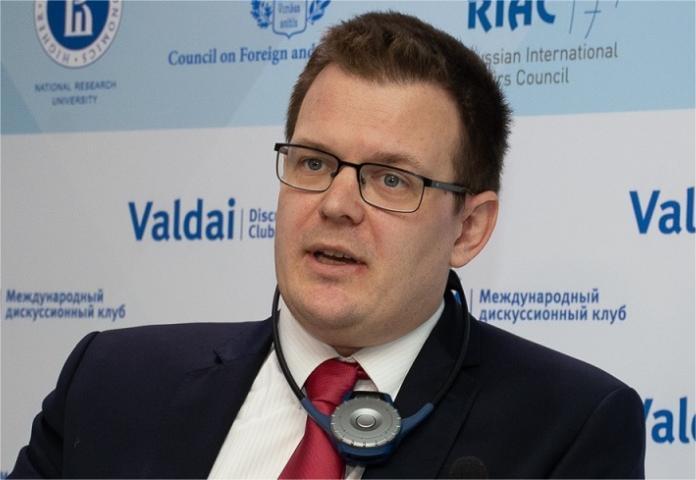
Mohsen Abdelmoumen: You have just published the excellent book The Ukraine War & the Eurasian World Order. In this very interesting book, you give an analysis of the state of the world of today. Do you think we are at the end of a cycle and in a process that marks the end of Western hegemony? In your opinion, will it take long to bring about a multipolar world?
Glenn Diesen: The world is already multipolar in terms of the international distribution of economic power and military power. However, the international institutions and rules of a multipolar world order have not been established as this transition is resisted. The conflicts and wars that are already here or arriving soon derive from the current interregnum as the West is pushing for restoring unipolarity, while the global majority demands multipolarity. The West’s administrative control over the international economic system is used to hold on the hegemonic structures and weaken strategic rivals, which puts further pressure on the rest of the world to decouple and create alternative arrangements and institutions.
Don’t you think that NATO, this criminal organisation at the service of the Western oligarchy, must be dismantled?
The expansion of NATO is the manifestation of the unipolar order after the Cold War as it cancelled an inclusive pan-European security order. NATO is therefore predictably the main instigator of conflicts and wars as a military instrument of hegemony. Yet, the answer does not have to be reduced to either preserving or dissolving NATO. During the Cold War, NATO was a status-quo power but after the Cold War it became a revisionist bloc as it pursued expansionism and military interventionism. Peacetime alliances tend to destabilise the international system, although NATO could play some role if it subordinated itself under a pan-European security architecture and did not elevate itself above international law in accordance with the UN Charter. This would be very problematic to achieve as hegemony through militarism is the main purpose of NATO.
With the West’s strategic defeat in Ukraine, are we not witnessing a paradigm shift heralding a new world order?
NATO’s defeat in Ukraine will a huge shock to the West. States do not constrain themselves and only stop expanding when there is a balance. The collapse of the Soviet Union unleashed expansionist impulses in the West, manifested through NATO expansion and military aggression around the world. The defeat of NATO in Ukraine will be the end of the unipolar world order as the West must accept that it has been balanced. This will have to change the purpose of NATO, the internal dynamic among NATO member states, how diplomacy is conducted, and many other aspects that will cement a new world order based on multipolarity.
The West has imposed a whole raft of economic sanctions against Russia. In your opinion, isn’t this policy of sanctions against Russia a total failure for the West?
Yes, the sanctions reflect the hegemonic mentality of a unipolar world order. The assumption has been that the West is the indispensable centre of economic power and Russia would collapse as a result of sanctions. In reality, Russia could diversify away from its Western economic partners and the Russian economy is growing. In contrast, the Europeans cannot diversify away from Russian natural resources and European industries are subsequently no longer competitive as energy is its lifeblood. The same applies to America’s economic warfare against China. The objective of destroying the Chinese chip industry failed as China could diversify and pursue self-sufficiency, meanwhile American tech industries such as Intel are suffering greatly from the loss of the Chinese market. It is a new multipolar world, and the West will continue to suffer until there is an adjustment to this new reality.
You also wrote the book Russophobia: Propaganda in International Politics. How do you explain the Russophobia of the Western ruling elites?
Russia always had a central role in the formation of the West’s own identity. Human beings organise themselves in groups and a key instinct is to identify the in-group (“us”) and the out-group (“them”). Russia has through history been delegated role of the West’s “other” as it was West versus East, civilised versus barbarian, European versus Asiatic, liberal versus authoritarian, superior versus inferior etc. Russia has been presented simplistically and propagandistically as the opposite of the West for centuries. Russia therefore has the important role of being portrayed as the evil barbarians at the doorstep of Europe that cements the identity and solidarity of the West.
Your book Europe as the Western Peninsula of Greater Eurasia: Geoeconomic Regions in a Multipolar World is also very interesting. Don’t you think that Europe’s policy of following the United States is running the risk of wrecking Europe economically and politically? What are the prospects for Europe in a chaotic liberal world?
As the world has transitioned to multipolarity, states that want to act as an independent pole of power must diversify their economic partnerships. Around the world, countries as diverse as India, Turkey, Saudi Arabia, Brazil, and others are all attempting to diversify economic partnerships to ensure they do not become subordinated in a bloc. The Europeans are doing the exact opposite by severing their economic ties with Russia, China, Iran and others at the behest of the US. The result is that the European economies become weaker and excessively dependent on the US. The predictable result is the loss of political autonomy and reduced relevance of Europe.
Are we not witnessing a historic moment when the collapse of Europe is inevitable?
European states no longer defend their basic national interests, and they are subsequently in decline. It could be reversed, but there is no political leadership.
How do you interpret the emergence of a sovereignist movement from the United States to Europe?
It will most likely be nationalist-populist movements that push for restoring national sovereignty and defending basic national interests. However, many of these movements are very unpredictable and have some unsavoury members.
How do you explain the billions of dollars in Western support for the neo-Nazi regime in Ukraine, despite Zelensky’s illegitimacy?
I do not think support relies on legitimacy. The fascist groups have been used by the US for over a decade as a veto over the democratic will of Ukrainians. The US has been building Ukraine as a proxy actor for the past decade, it has captured the political class and military while society has been sidelined. The billions of dollars are required in the absence of legitimacy.
Our nation-state, Algeria, is facing numerous attempts at destabilization by Western occult circles. Our country supports just causes while advocating a policy of non-interference in the internal affairs of other countries. Why do these Western leaders want to impose their diktats on sovereign states? When will these Western leaders stop giving lessons in democracy and human rights? Shouldn’t they be looking after their own affairs rather than meddling in those of others?
Throughout history, states have referred to universal values to deny sovereign equality to other states. In the past, “civilised” states and peoples had the right for sovereignty, while “barbaric” people did not qualify for sovereignty. In the current era, the liberal democracy versus authoritarian divide is the claim for sovereign inequality. There are some who genuinely believe in the new liberal democratic civilising mission, but for others it is merely instrumental for power politics.
Do you think we’re heading for a world war?
Yes. There is endless escalation in several parts of the world without any political willingness to understand or even talk to the other side. When someone believes that the world is divided by good versus evil values, then diplomacy and compromise become appeasement and peace is achieved by destroying the opponent.
Interview realized by Mohsen Abdelmoumen
Who is Glenn Diesen?
Glenn Diesen is a professor at the University of Southeast Norway (USN) and an associate editor at the Russia in Global Affairs journal. Diesen is a board member at the International Institute for Peace (IPP) in Vienna, the Centre for Nationalism Studies (CNS) in Sarajevo, and at Contemporary World Economy in Moscow. His main research focus is Russian foreign policy, geoeconomics, and Eurasian integration. Diesen has published 11 books translated into a multitude of languages, many journal articles and book chapters. Diesen is frequently a keynote speaker around the world and a regular contributor to international media.
His books include: « Russophobia: Propaganda in International Politics » (2023); « The Think Tank Racket: Managing the Information War with Russia » (2023); « Great Power Politics in the Fourth Industrial Revolution: The Geoeconomics of Technological Sovereignty » (2022); « Europe as the Western Peninsula of Greater Eurasia: Geoeconomic Regions in a Multipolar World » (2023); « Russian Conservatism: Managing Change under Permanent Revolution » (2021); « The Ukraine War & the Eurasian World Order » (2024).
Published in French in Algeriepatriotique: https://www.algeriepatriotique.com/2024/08/20/interview-glenn-diesen-lotan-est-le-principal-instigateur-de-conflits/
